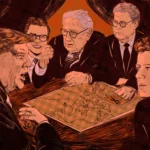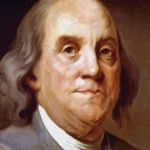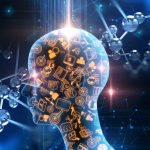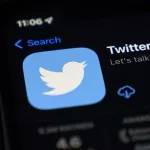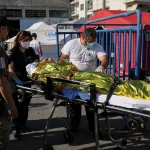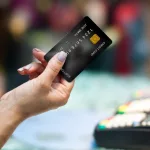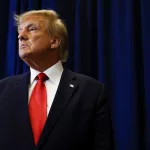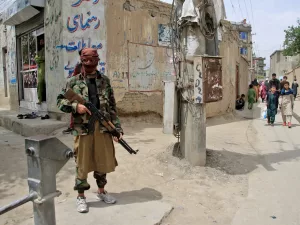National diplomats are essential to representing their countries and negotiating the intricacies of international diplomacy. These knowledgeable individuals serve as the main conduit between countries, establishing communication, settling disputes, and encouraging collaboration. This article examines the varied duties of national diplomats and their relevance in influencing world affairs.
Role of National Diplomats
1: Introduction
2: The Definition and Evolution of Diplomacy
3: The Role of National Diplomats
3.1 Negotiation and Diplomatic Bargaining
3.2 Building and Maintaining Alliances
3.3 Conflict Resolution and Mediation
3.4 Representing National Interests
3.5 Promoting Cultural Exchange and Public Diplomacy
3.6 Gathering and Analyzing Intelligence
4: Skills and Qualities of Effective National Diplomats
5: Challenges and Constraints Faced by National Diplomats
6: The Impact of Technology on Diplomatic Practices
7: Diplomatic Immunity and Protocols
8: The Future of Diplomacy in an Ever-Changing World
9: Conclusion
10: FAQs
1: Introduction
The foundation of international relations is diplomacy, which enables nations to cooperate, negotiate, and participate in discourse instead of fighting. National diplomats represent their nations with professionalism and use their knowledge of diplomacy to negotiate the intricate web of international politics.
2: Diplomacy: Definition and Development
The term “diplomacy” relates to the art and practice of negotiating between nations and is derived from the Greek word “diploma,” which means folded paper or a document. Over the years, it has changed to reflect the shifting dynamics of the world stage. Negotiation, communication, cultural exchange, dispute resolution, and representation are all included in today’s definition of diplomacy.
3: The Role of National Diplomats
3.1 Negotiation and Diplomatic Bargaining
Negotiations and diplomatic bargaining on behalf of their different nations are one of the main responsibilities of national diplomats. They work to achieve favorable outcomes in matters like trade, defense agreements, territorial disputes, and international cooperation while representing the interests of their countries. Excellent negotiating skills and a thorough knowledge of the interests and policies of their nation are essential for diplomats.
3.2 Building and Maintaining Alliances
To establish and maintain alliances with other countries, national ambassadors are essential. They form alliances, build networks, and foster relationships that further their common interests and goals. Diplomats advance economic growth, increase security, and promote international collaboration by fostering these partnerships.
3.3 Conflict Resolution and Mediation
In international crises, diplomats frequently act as mediators, attempting to find peaceful solutions and averting the escalation into a military confrontation. Through diplomacy, they help disputing parties communicate, find points of agreement, and look for deals that deal with fundamental problems. They play a crucial role in resolving disputes that help to keep the world peaceful and stop war from breaking out.
3.4 Representing National Interests
The chief ambassadors of their nations on the international scene are national diplomats. They represent the interests of their country by expressing viewpoints and policy views to other countries, international organizations, and platforms like the United Nations. Diplomats create international policy and impact decision-making processes by properly representing their nations.
3.5 Promoting Cultural Exchange and Public Diplomacy
A diplomat’s duties must include public diplomacy and cultural exchange. They serve as cultural ambassadors, advancing knowledge of and respect for their home nation’s customs, values, and way of life. Through a variety of efforts, including art exhibitions, cultural festivals, educational programs, and language exchanges, diplomats promote interpersonal relationships and close cultural divides. These initiatives promote favorable attitudes, mutual respect and strengthen international ties.
3.6 Gathering and Analyzing Intelligence
For their governments, national diplomats are important sources of Intelligence. They gather data, examine political and economic trends, and evaluate the goals and potential of other nations. This Intelligence aids decision-makers in developing sensible plans of action and defending the interests of the nation’s security. Diplomats gain important information by maintaining a network of contacts, communicating with local authorities, and using their diplomatic abilities.
4: Skills and Qualities of Effective National Diplomats
National diplomats require skills and qualities to excel in their roles. These include:-
Strong negotiation skills are necessary for diplomats to properly promote their nation’s interests and come to amicable accords.
Cross-Cultural Communication: Diplomats must communicate effectively across cultural divides to forge connections, prevent misinterpretations, and close perception gaps.
Flexibility: Diplomats frequently operate in a variety of demanding contexts. They must immediately acclimatize to other cultures, tongues, and traditions.
Analytical Thinking: Diplomats must evaluate risks, analyze intricate global issues, and create innovative solutions.
Problem-Solving: Diplomats face a variety of difficulties and disputes. To come up with amicable solutions, they must show great problem-solving abilities.
Diplomats must use emotional Intelligence and diplomacy to negotiate delicate political terrain, establish trust, and resolve disputes.
5: Challenges and Constraints Faced by National Diplomats
In their employment, national diplomats encounter a variety of difficulties and limitations. These consist of the following:
Political Constraints: Diplomats work in a political setting where political influences influence their choices and actions. Language and cultural barriers can make it difficult for diplomats to communicate clearly in other languages and comprehend cultural nuances.
Security risks: Diplomats may suffer security risks, particularly in conflict or political unrest areas, necessitating their vigilance and adopting appropriate safety measures. Limited Resources: Diplomatic missions frequently work with scarce resources, which makes it difficult for them to do their tasks successfully.
6: The Impact of Technology on Diplomatic Practices
Technological breakthroughs have profoundly altered diplomatic procedures. Modern communication tools have completely changed how diplomats communicate and share information. Real-time communication is made possible by digital platforms, social media, and video conferencing, which speeds up diplomatic encounters. Technology does, however, also provide difficulties, such as cybersecurity dangers and the potential for false information.
7: Diplomatic Immunity and Protocols
A key component of diplomatic practice is diplomatic immunity. It offers specific legal rights and advantages to ensure diplomats can perform their jobs without hindrance. These privileges cover the homes, communications, and personal safety of ambassadors. The behavior of ambassadors is governed by diplomatic protocols, which lay out the etiquette and standards for dealing with host nations.
8: The Future of Diplomacy in an Ever-Changing World
The function of national diplomats will change to meet new opportunities and challenges as the world continues to develop. Diplomacy will continue to be essential for resolving disputes, encouraging collaboration, and addressing global concerns like climate change, cybersecurity, and pandemics in a world that is becoming more interconnected and interdependent. Diplomats must use technology and digital diplomacy to increase their efficacy and reach more people.
Diplomats will also need to interact with non-state entities in the future, such as civil society organizations, big businesses, and grassroots movements. Diplomatic endeavors must take into account these actors since they have a significant impact on how international affairs are shaped.
Additionally, diplomacy will expand in scope and demand a variety of perspectives. Nations will strive to have ambassadors who reflect the variety of their populations so that diplomatic conversations and decision-making processes will include a wider range of experiences and opinions.
9: Conclusion
In international relations, national diplomats are essential players. Their responsibilities also include representation, fostering cross-cultural understanding, and negotiating agreements. Negotiation, cross-cultural communication, adaptability, and problem-solving are just a few of effective diplomats’ abilities. Using technology and diplomatic conventions, they manage difficulties like political pressures, linguistic obstacles, and security dangers.
Diplomacy will be essential in determining the future in an always-evolving world. To handle global concerns and promote international collaboration, diplomats will need to be able to adapt, innovate, and engage with a variety of stakeholders.
Additionally, national diplomats are crucial to international relations since they represent their nations and participate in various diplomatic tasks. Diplomats influence the direction of world diplomacy through negotiation, alliance-building, crisis resolution, and cultural exchange. Technology integration, inclusive practices, and engagement with non-state players will all be part of the future of diplomacy. Diplomats will continue to deal with difficult situations and advance a more cooperative and interconnected society with their abilities and agility.
10: FAQs
Q1: Who can serve as a national diplomat?
A1: People from various backgrounds can seek diplomatic responsibilities, although these positions frequently call for a certain set of credentials and linguistic abilities. Every nation has its own specifications and selection procedures.
Q2: How long does it take to develop into an experienced diplomat?
A2: The road to becoming a seasoned diplomat can differ, but it normally entails years of formal education, practical experience, and training. The requisite knowledge and abilities can take a long time to acquire.
Q3: Do foreign diplomats take part in peacekeeping operations?
A3: In peacekeeping deployments, national diplomats can be quite important. They support diplomatic conflict resolution by participating in negotiations and serving as mediators.
Q4: How do diplomats promote the culture of their nation?
A4: Through cultural events, exhibitions, educational initiatives, and partnerships with artists and cultural organizations, diplomats promote the culture of their nation. They serve as a showcase for the diversity and richness of their country’s heritage.
Q5: How do diplomats ensure their citizens are secure when traveling abroad?
A5: Diplomats collaborate closely with the nations they are visiting to safeguard the security and welfare of their inhabitants. They offer consular assistance, help in times of need, and open lines of contact to handle issues.




